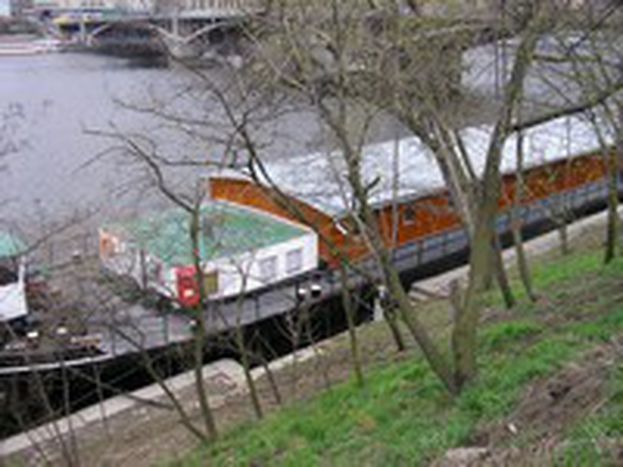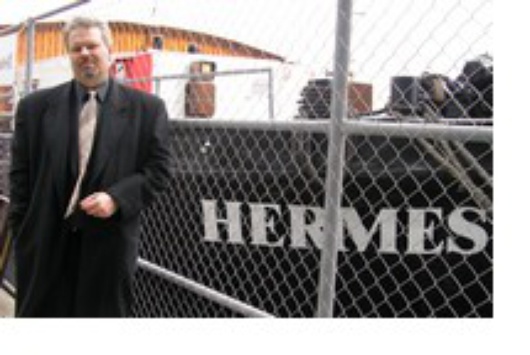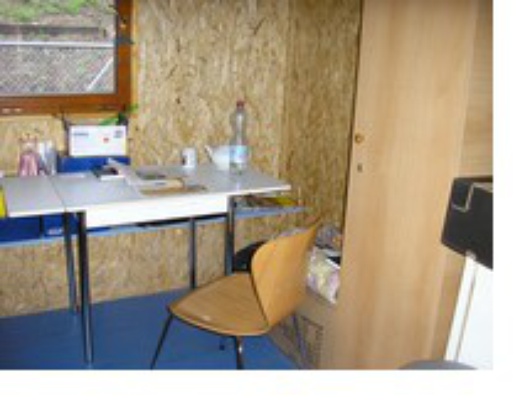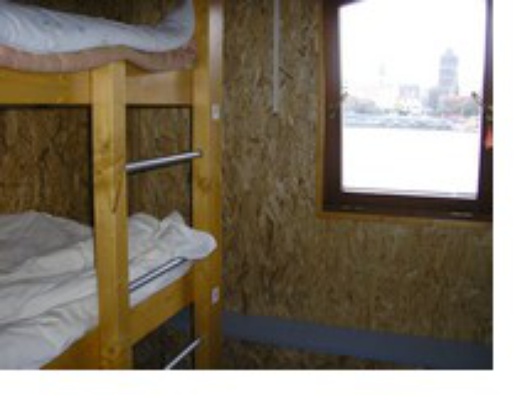
Czech homeless get on board
Published on
Translation by:
Rebecca CaulfieldPrague has installed a new boat as a shelter for homeless people - the people left behind by modernisation within the country
Michael Kopecky, advisor to the mayor of Prague, is proud of his new baby: a boat for homeless people which is docked at the bank of the Vltava River, near the city centre. Sitting inside the boat, he smiles as he recalls that he came up with the idea of a floating shelter whilst 'thinking about buying a new boat.'
The shelter, which can house up to 250 people, was born amidst criticism from Prague's districts. They were against the creation of new shelters for homeless people (over 5, 000 people, for whom there are only 700 beds). The town hall was eager to act on a situation which is considered a problem for tourism among other things. The town hall decided to transform a merchandising boat, Hermes, into a shelter to be situated on the river.
Upon entering Hermes along with politicians and journalists on her inauguration night, a 22-year-old homeless man declared 'this is paradise' to David Stojka of the France Presse agency. 'I’m going to try to stay here for a few nights and get a job in a supermarket,' announced the young man.
Homeless people don’t like anything
 With surprising frankness, the municipal advisor has expressed his vision of the problem of homelessness in the Czech Republic and in the rest of Eastern and Central Europe. It surged with great force during the political and economic revolution of the nineties. Kopecky acknowledges that if Hermes was not docked in the river opposite the city centre, 'it would have closed in months. We don’t like them and they don’t like us,' he says about the homeless, arguing that they only ever ask for help and 'don’t do anything for themselves to change their situation.
With surprising frankness, the municipal advisor has expressed his vision of the problem of homelessness in the Czech Republic and in the rest of Eastern and Central Europe. It surged with great force during the political and economic revolution of the nineties. Kopecky acknowledges that if Hermes was not docked in the river opposite the city centre, 'it would have closed in months. We don’t like them and they don’t like us,' he says about the homeless, arguing that they only ever ask for help and 'don’t do anything for themselves to change their situation.
The municipal advisor regrets that 'only half' of the homeless people that come to Hermes 'want to change their life.' It's a fact that was used to divide the boat into two parts: one for those with better prospectives including a job - albeit a precarious one - and the other, for the rest of them.
Full board for 1 Euro a night
 For a little under 1 Euro a night a homeless person can sleep, have breakfast, shower and receive health assistance in one of the installations, compared to staying in a shelter or youth hostel. 'It's the price of a cheap bottle of wine,' explains one of the eight boat workers.
For a little under 1 Euro a night a homeless person can sleep, have breakfast, shower and receive health assistance in one of the installations, compared to staying in a shelter or youth hostel. 'It's the price of a cheap bottle of wine,' explains one of the eight boat workers.
Just how does someone get to this point? According to statistics from the Czech Institute of Social and Labour Studies, and Novy Prostor, the diary of the homeless in Prague, the most common cause is divorce; the second is losing a job. Other causes are being released from jail and alcoholism.
Rich and hostile city
Ilja Hradecky, director of the NGO Nadeje which supports Hermes, stresses that the main objective of the boat is to 'rescue the homeless from the inevitability of dying on the streets.' But he argues that a social job which can be carried out in a day centre could complete the social rehabilitation of these people.
Vlastimila Hradecká, Ilja’s wife, founded Nadeje in 1990 in order to help the refugees of the Romanian regime. Seventeen years later, with six hostels dedicated to homeless people, the institution helps, above all, the Czech people. It is in accordance with important political subventions.
In any case, the dazzling Prague, which according to Eurostat, has a GDP per person of 57% above the EU average, should dedicate more energy to fighting extreme poverty. 'Neither the state nor the citizens have the ability to face up to this problem,' announced Ilja Hradecky, who also gives a bittersweet account of the residents of Prague’s attitude towards homelessness. 'On the one hand, they support the organisations which subsidise social services and the volunteers who want to help. But on the other hand, there are the negative words of politicians, who speak of violence and assassinations for fun.'
Czech Republic: rebellious student?
 Milena Cerná, Czech representative of the European Network against Poverty, considers the homeless situation in Prague to be more serious than in other capitals on the continent. 'I have never seen a person sleeping in a tram in any other city. Maybe the reason is that there aren’t any shelters for alcohol or drug addicts,' she claims.
Milena Cerná, Czech representative of the European Network against Poverty, considers the homeless situation in Prague to be more serious than in other capitals on the continent. 'I have never seen a person sleeping in a tram in any other city. Maybe the reason is that there aren’t any shelters for alcohol or drug addicts,' she claims.
When asked about the influence of economic growth and European funds in the fight against social exclusion, Cerná explains, disappointed, that 'there’s no responsible politician' in this sense. 'Besides,' she reiterates, 'Czech authorities don’t like learning from other countries.'
In-text photos: Michal Kopkecky, room and beds in the Hermes (XH)
Translated from Los sin techo en Praga: ¡al abordaje!



